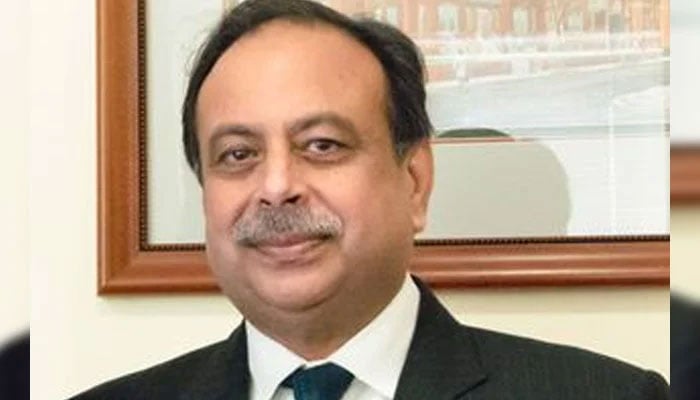AGP Ashtar Ausaf Ali resigns citing health issues: sources
Sources say PM Shehbaz Sharif has directed Ashtar Ausaf Ali to keep serving till a new AGP is appointed
In a major development in the political situation, Attorney General of Pakistan (AGP) Ashtar Ausaf Ali has tendered his resignation, citing health issues, sources said on Wednesday.
Sources privy to the matter said that Ausaf has excused himself from continuing to work as the AGP due to "bad health". However, Prime Minister Shehbaz Sharif directed Ausaf to keep serving the post till the appointment of a new AGP.
Ausaf was appointed as the new Attorney General for Pakistan after Prime Minister Shahbaz Sharif's approval on May 7.
The post of attorney general fell vacant after Khalid Javed Khan resigned on April 9 following the departure of the PTI government, saying he had tried to serve the country to the best of his ability and conscience.
It may be noted that Ausaf has been suffering from some ailment for a while and had also travelled abroad for treatment.
JCP meeting to be held today
Interestingly, the news of the AGP’s resignation came a few minutes before the Judicial Commission of Pakistan, of which he is a member, was scheduled to meet on the appointment of judges.
The JCP, which is meeting after a gap of five months, is expected to take up the permanent appointment of 13 Lahore High Court judges.
Controversy surrounding last JCP meeting
AGP Ali was at the centre of the controversy surrounding the last JCP meeting.
The last JCP meeting, held in July last year, it was reported based on sources that the commission had rejected CJP Bandial's nominated judges of higher courts for their elevation to the SC.
CJP Bandial had presided over the judicial commission's session, where a total of five judges, two from the Sindh High Court and three from the Lahore High Court (LHC), were considered.
However, the official statement issued by the Supreme Court stated that the JCP chairman, after detailed discussion, proposed to “defer the meeting in order to enable the Hon’ble Chief Justice of Pakistan to place additional information and data about those already proposed and if he considers appropriate, add more names to the list of proposees for consideration by the JCP”.
“The proposal to defer the meeting was supported by Mr Justice Ijaz-ul-Ahsan, Mr Justice Sajjad Ali Shah, Mr Justice (Retd) Sarmad Jalal Osmany and the Attorney General for Pakistan. It was accordingly decided to defer the meeting. The date of the next meeting will be communicated to the Members of the Judicial Commission by the Chairman, JCP,” the statement had said.
However after the statement was made public, two members of the JCP— Justice Isa and Justice Sardar Tariq Masood — stated that the statement was not reflective of what had transpired in the JCP meeting.
Following criticism, the apex court uploaded the audio of the JCP meeting on its website.
“In these exceptional circumstances the Hon’ble chairman JCP has been pleased to relax the restriction under Rule 5(4) of the JCP Rules, 2010 and has directed for the audio recording of the JCP proceedings of 28.07.2022 to be made available on the official website of the SCP,” said a statement issued by the apex court.
The Supreme Court, in its statement, claimed that the “audio recording from time slot 1:29:45 to 1:38:08 contains the statement” made by Attorney-General for Pakistan Ashtar Ausaf Ali, led to the deferment of the meeting as claimed by the PRO.
The statement also claimed that the AGP “did not assess or reject the merits of any of the High Court judges proposed for appointment to the SCP”.
“As a result, 5 members of the JCP supported the deferment of the meeting as reported in the Press Note of 28.07.2022,” said the SCP.
-
Security forces gun down 30 terrorists in multiple IBOs in KP: ISPR
-
MQM-P calls for new province in Sindh
-
US report validates Pakistan military edge over India: PM
-
Banned TTP poses serious threat to Pakistan security: UNSC panel
-
CM Afridi clarifies remarks on by-poll after ECP requests army deployment
-
Dubai sees 3.2m Pakistani passengers in 2025 as airport sets new milestone
-
Security forces kill 23 Indian proxy terrorists in KP's Kurram
-
Pakistan to construct island to boost oil exploration: report












